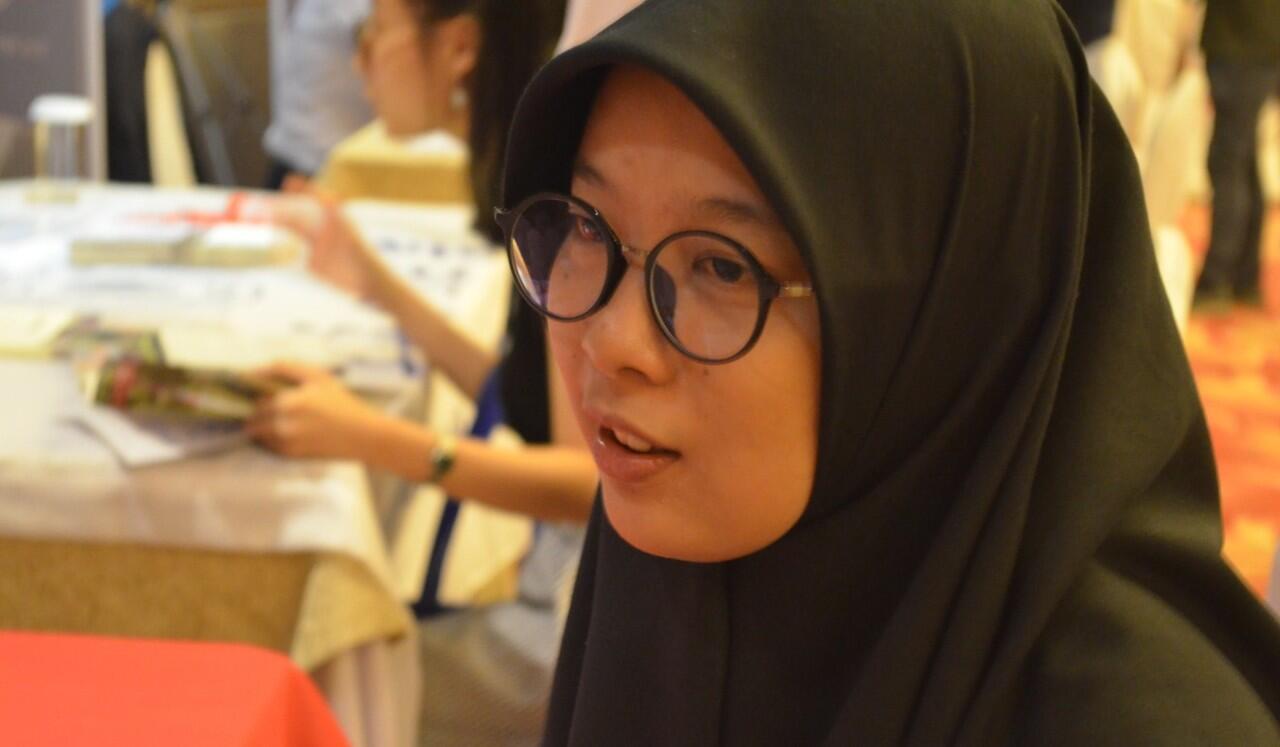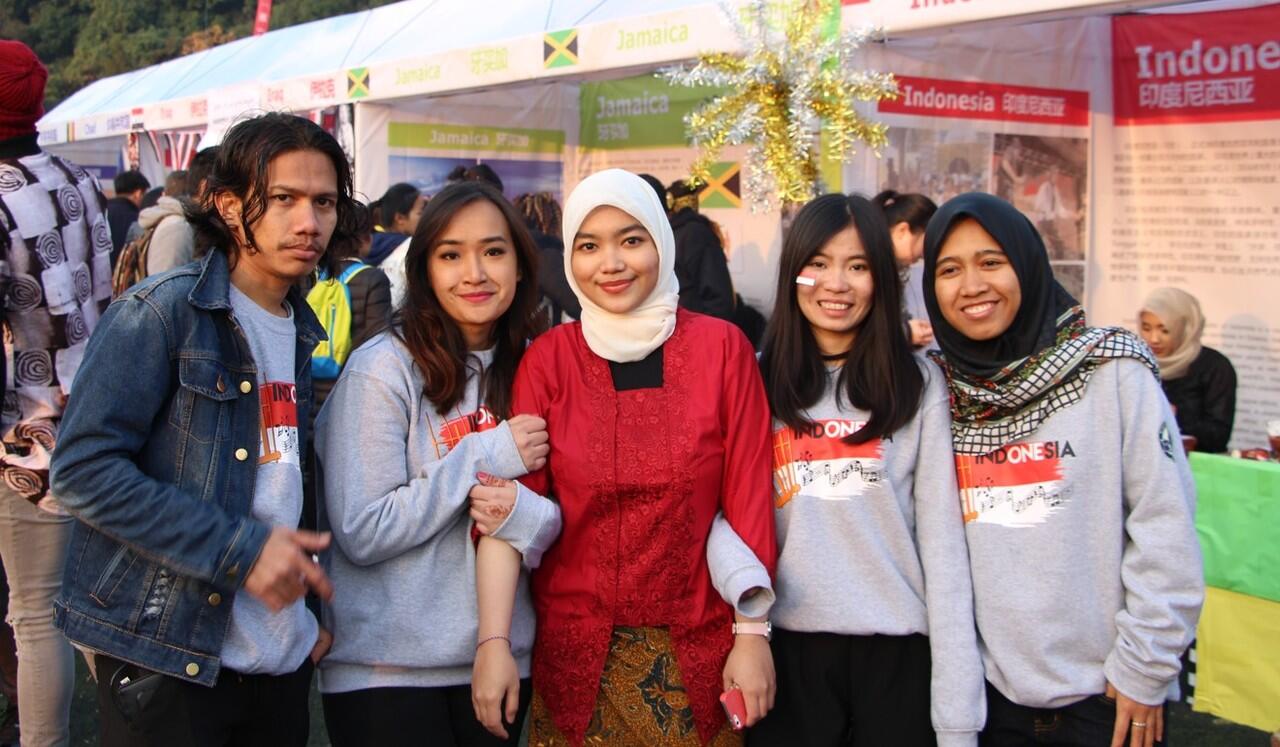- Beranda
- Berita dan Politik
Apa Yang Membuat Pelajar Indonesia Lupa akan Tabu tentang China ?
...
TS
jopjop555
Apa Yang Membuat Pelajar Indonesia Lupa akan Tabu tentang China ?
WHAT’S MADE INDONESIAN STUDENTS FORGET THE CHINA TABOO?
Not that long ago, having a Chinese book was strictly prohibited in Indonesia. But now the country’s young people are attending Chinese universities by the thousands
BY AISYAH LLEWELLYN
1 APR 2018
Jevon Tantono is a confessed “mechatronics geek”. His eyes light up when he talks about the possibility of studying this mash-up of mechanical engineering, electronics, computer engineering and telecommunications. His dream job is to build industrial robots.
For him, there is only one place to chase that dream: China. Indonesia’s universities don’t have a mechatronics programme and Tantono would be stuck studying mechanical engineering were he to stay in his home country.
“That’s very much my second choice,” says Tantono, 18, the light fading from his eyes at the very idea.

Jevon Tantono believes the only way he can achieve his dream is to study in China. Photo: Teguh Harahap
Tantono, one of dozens of students at a recent university fair in Medan featuring many of the top institutes in China, is part of a growing wave of young Indonesians who are happy to cast aside the complex and difficult history between the nations in pursuit of studying in China – a taboo notion until recently.
China is welcoming these students with open arms. There are 14,000 Indonesians studying in China, according to government data. Last year, Beijing announced it had created 197 full scholarships for Indonesians who would like to pursue undergraduate and graduate degrees. In 2015, there were only 15 full scholarships set aside for Indonesians.
Anggun Dwi Nursitha, 21, came to the fair to learn more about the scholarships. Nursitha currently studies Chinese literature at Universitas Sumatera Utara, in Medan. She wants to earn a master’s degree in the subject in China.
“I want to be a journalist in Indonesia focusing on relations with China so studying in the country will be very beneficial for me,” she says.

Anggun Dwi Nursitha wants to study Chinese Literature in China. Photo: Teguh Harahap
But studying in China is a relatively new phenomenon for Indonesian students, and Indonesia has a conflicted history not only with China, but particularly Chinese language studies. From 1967 to 1998, under the leadership of the dictator Suharto, Chinese language schools and books were banned, as was the celebration of Chinese festivals such as Lunar New Year.
However, most of the present generation of students were born after the Suharto years and have been far less influenced by the anti-Chinese sentiments that plagued the country for decades.
Natalia Hilman Sentosa, 22, a Indonesian of Chinese descent, studies Chinese language and business at Guangzhou University, where she went after high school. For her, there were no issues studying in a country or a language once considered taboo. “Now, Chinese is everywhere in Indonesia. Not just the language but the culture too.”
While anti-Chinese sentiment in Indonesia still exists, it has become less obvious, says Christine Tjhin, a senior researcher at the Centre for Strategic and International Studies Indonesia. “Suspicion against Chinese citizens is probably more about Indonesia’s domestic issues, particularly related to economic access, racial stereotypes and, perhaps to a lesser degree, ideological concerns like communism. On the other hand, going to or studying in China is viewed differently.”
Data from Unesco, the UN’s educational body, shows that in 2016, 42,000 out of about 6 million Indonesians enrolled in higher education chose to study abroad, with around 20,000 studying in Australia, the top destination. According to the Chinese Service Centre for Scholarly Exchange, the number of Indonesians studying in China has increased by 10 per cent annually since 2010.
Jason West, who manned Shanghai University’s booth at the fair, is the head of the English department at the university’s SILC Business School. He says the wave of Indonesian students coming to China is part of a regional trend. “Historically, people wanted to come to China to learn the Chinese language and study Chinese culture. Now studying in China is part of the wider integration process that we are seeing across Asia.”
Chinese universities have also become more outward facing in recent years. The ability to offer programmes of study in English – which wasn’t available a few years ago – means they no longer have to rely solely on Chinese citizens to fill university places.
“Universities in China are opening up and can now position themselves as international universities that have something to offer foreign students. It’s also a way to bridge relations between China and other countries,” West says.

Marsha Neida Harini, centre, with students at a university fair in Medan. Photo: Teguh Harahap
The idea of China representing opportunities for the future – rather than being a country that has a fraught past with Indonesia – is something that many Indonesian students stress when explaining why they want to study abroad.
Marsha Neida Harini, 22, studies Human Resources Management at Wuhan University. She chose to study in China because it offered a more cosmopolitan experience than her home country.
“I also saw it as a new experience that I would never get if I stayed in Indonesia. I’m learning Chinese and being able to speak another language will benefit me in the future when I look for a job.”
http://www.scmp.com/week-asia/societ...et-china-taboo
China top abis
Not that long ago, having a Chinese book was strictly prohibited in Indonesia. But now the country’s young people are attending Chinese universities by the thousands
BY AISYAH LLEWELLYN
1 APR 2018
Jevon Tantono is a confessed “mechatronics geek”. His eyes light up when he talks about the possibility of studying this mash-up of mechanical engineering, electronics, computer engineering and telecommunications. His dream job is to build industrial robots.
For him, there is only one place to chase that dream: China. Indonesia’s universities don’t have a mechatronics programme and Tantono would be stuck studying mechanical engineering were he to stay in his home country.
“That’s very much my second choice,” says Tantono, 18, the light fading from his eyes at the very idea.

Jevon Tantono believes the only way he can achieve his dream is to study in China. Photo: Teguh Harahap
Tantono, one of dozens of students at a recent university fair in Medan featuring many of the top institutes in China, is part of a growing wave of young Indonesians who are happy to cast aside the complex and difficult history between the nations in pursuit of studying in China – a taboo notion until recently.
China is welcoming these students with open arms. There are 14,000 Indonesians studying in China, according to government data. Last year, Beijing announced it had created 197 full scholarships for Indonesians who would like to pursue undergraduate and graduate degrees. In 2015, there were only 15 full scholarships set aside for Indonesians.
Anggun Dwi Nursitha, 21, came to the fair to learn more about the scholarships. Nursitha currently studies Chinese literature at Universitas Sumatera Utara, in Medan. She wants to earn a master’s degree in the subject in China.
“I want to be a journalist in Indonesia focusing on relations with China so studying in the country will be very beneficial for me,” she says.

Anggun Dwi Nursitha wants to study Chinese Literature in China. Photo: Teguh Harahap
But studying in China is a relatively new phenomenon for Indonesian students, and Indonesia has a conflicted history not only with China, but particularly Chinese language studies. From 1967 to 1998, under the leadership of the dictator Suharto, Chinese language schools and books were banned, as was the celebration of Chinese festivals such as Lunar New Year.
However, most of the present generation of students were born after the Suharto years and have been far less influenced by the anti-Chinese sentiments that plagued the country for decades.
Natalia Hilman Sentosa, 22, a Indonesian of Chinese descent, studies Chinese language and business at Guangzhou University, where she went after high school. For her, there were no issues studying in a country or a language once considered taboo. “Now, Chinese is everywhere in Indonesia. Not just the language but the culture too.”
While anti-Chinese sentiment in Indonesia still exists, it has become less obvious, says Christine Tjhin, a senior researcher at the Centre for Strategic and International Studies Indonesia. “Suspicion against Chinese citizens is probably more about Indonesia’s domestic issues, particularly related to economic access, racial stereotypes and, perhaps to a lesser degree, ideological concerns like communism. On the other hand, going to or studying in China is viewed differently.”
Data from Unesco, the UN’s educational body, shows that in 2016, 42,000 out of about 6 million Indonesians enrolled in higher education chose to study abroad, with around 20,000 studying in Australia, the top destination. According to the Chinese Service Centre for Scholarly Exchange, the number of Indonesians studying in China has increased by 10 per cent annually since 2010.
Jason West, who manned Shanghai University’s booth at the fair, is the head of the English department at the university’s SILC Business School. He says the wave of Indonesian students coming to China is part of a regional trend. “Historically, people wanted to come to China to learn the Chinese language and study Chinese culture. Now studying in China is part of the wider integration process that we are seeing across Asia.”
Chinese universities have also become more outward facing in recent years. The ability to offer programmes of study in English – which wasn’t available a few years ago – means they no longer have to rely solely on Chinese citizens to fill university places.
“Universities in China are opening up and can now position themselves as international universities that have something to offer foreign students. It’s also a way to bridge relations between China and other countries,” West says.

Marsha Neida Harini, centre, with students at a university fair in Medan. Photo: Teguh Harahap
The idea of China representing opportunities for the future – rather than being a country that has a fraught past with Indonesia – is something that many Indonesian students stress when explaining why they want to study abroad.
Marsha Neida Harini, 22, studies Human Resources Management at Wuhan University. She chose to study in China because it offered a more cosmopolitan experience than her home country.
“I also saw it as a new experience that I would never get if I stayed in Indonesia. I’m learning Chinese and being able to speak another language will benefit me in the future when I look for a job.”
http://www.scmp.com/week-asia/societ...et-china-taboo
China top abis

0
4K
46
Guest
Tulis komentar menarik atau mention replykgpt untuk ngobrol seru
Mari bergabung, dapatkan informasi dan teman baru!
Berita dan Politik
671.1KThread•41KAnggota
Terlama
Guest
Tulis komentar menarik atau mention replykgpt untuk ngobrol seru